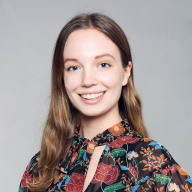
GraceAdams
Bio
Participation3
Head of Marketing at Giving What We Can
grace.adams @ givingwhatwecan.org
Posts 16
Comments34
I also attended the course and thought it was really well run!
Having access to courses like this to practice important skills is really important, and is the kind of thing that can be hard to access if you're working for a small non-profit.
I think having training sessions like this available to broader groups of people who would benefit would be very beneficial!
GWWC's membership has steadily grown in the recent years, so it's not that GWWC isn't getting more people to give significantly and effectively! I think this highlights broader questions about what the focus of the current effective altruism community is, and what it should be.
GWWC team members have advocated for a "big tent" effective altruism where everyone who wants to do good effectively should feel that they can be a part of the community - but anecdotally we hear sometimes that people who are primarily interested in giving don't feel like the broader effective altruism community is the right place for them. (So this might be why there is a decreasing trend seen in the survey)
I'd like to see that trend reverse, and GWWC continues to push for an inclusive EA community, where a spectrum of involvement is respected and celebrated but we can't do it all ourselves! We're only one part of the community, and I think it would take an increased focus on the "big tent" approach from other key organisations to help this be corrected.
Thanks for writing about this topic! I would like to see more discussion about disability on the forum and in other places!
On a personal note, I have dynamic disability (disability that varies in how it affects you over time and in different periods) and part of why I'm able to work full time currently is the flexibility and understanding that my remote-first employer and amazing manager have afforded me.
Part of learning about my own conditions and looking at how they impact me and others like me, and their global burden is what led me to want to look at the largest sources of suffering and how I could help to alleviate them.
Experience of disability is obviously very diverse and personal, and is not always negative but I am definitely motivated to alleviate suffering of others based on my own experiences.
I sadly don't contribute to this topic as much as I'd like as I'm already stretching myself in my current role so thanks for your voice here!
Thanks for this post Jenn! I think it's great to share perspectives from traditional non-profits! I think we should absolutely be trying our best to adopt what works really well at traditional non-profits. I think all the lessons you've raised make a lot of sense, and I'm especially passionate about the power of great customer service in all interactions!
Hey Spencer! Magnify Mentoring has 1) a fantastic mentoring program that supports women, non-binary and trans people (they also run an unrestricted round) and 2) a Slack space for all mentors and mentees who post job opportunities and aim to make connections!
I've been both a mentor and a mentee and have found a lot of value from the mentoring, as well as connecting with other people in the program.
I would definitely encourage you to apply for the next round when it's available!
Hi James, I just wanted to say that I think this post is great and is a helpful way to understand the different perspectives! I think it's critical for us to be listening to other groups who are also trying to create a better world.
One idea I have in my mind (that is probably not well thought out at all) is that having a mix of activists and pragmatists might actually be the best solution to create change. In my mind, the activists are the visionaries who paint a picture of how the world could be, and the pragmatists in many cases are slowly making the change happen, across many fronts. Just a stray thought :)
I really enjoy reading your work and think it makes a valuable contribution!

That's a really good point! I'll make a note to update the guide to include a note about this!